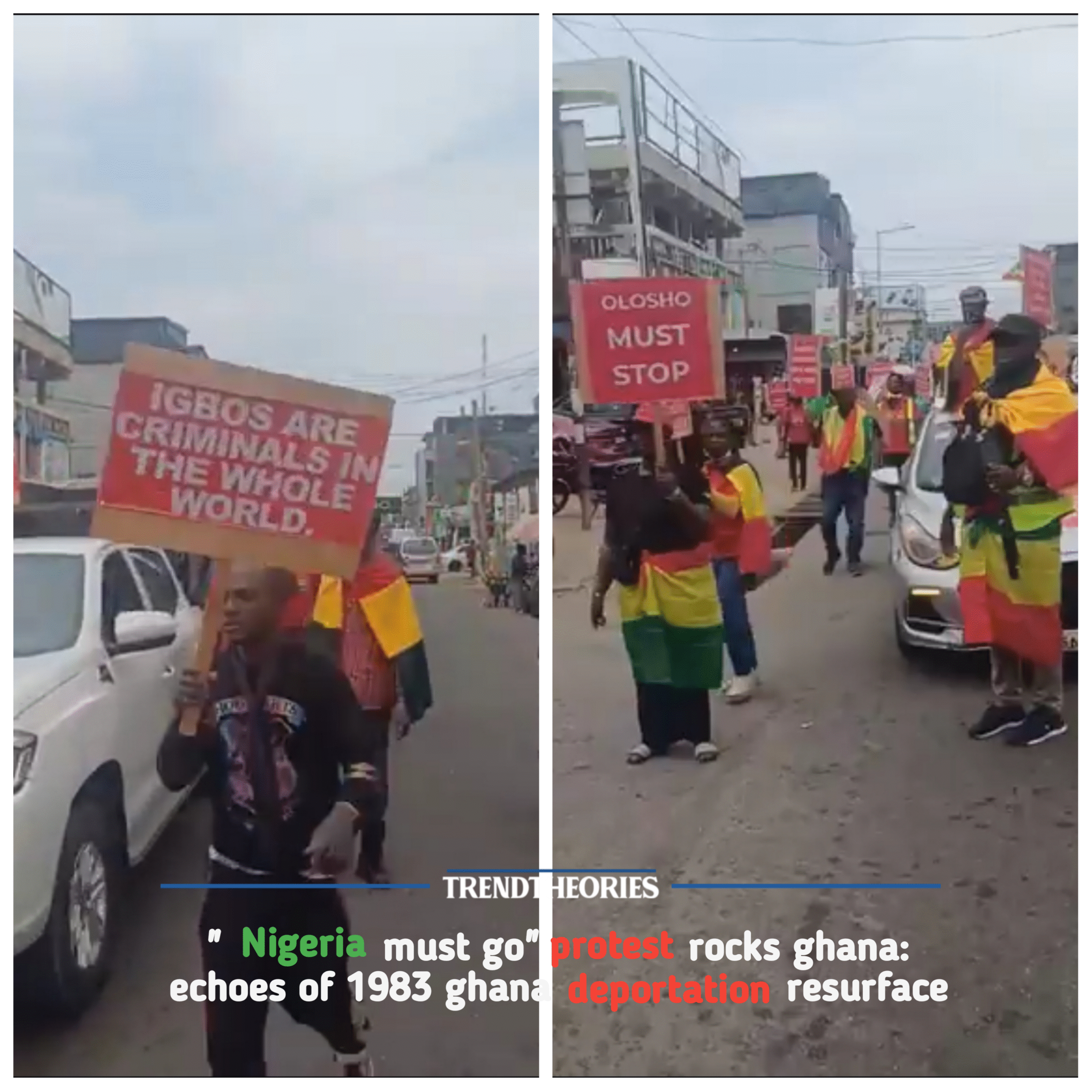“Nigeria Must Go” Protest Rocks Ghana: Echoes of 1983 Ghana Deportation Resurface
For the past few days, tensions have been rising across parts of Ghana as a viral protest campaign known as “Nigeria Must Go” continues to stir widespread attention and concern, particularly among Nigerians living in the country.
What began as a local outcry has quickly grown into a heated movement, now dominating online discussions across West Africa. Protesters have taken to the streets carrying signs – placards, to be precise – bearing controversial and deeply offensive statements. One such placard shockingly read: “Igbos are criminals in the whole world.” and another “Olosho must go” “Nigeria Must Go”
The protest appears to be specifically directed at Nigerians, with particular focus on the Igbo ethnic group, originating from southeastern Nigeria. This ethnic profiling and generalization have sparked outrage, raising fears of growing xenophobia and a looming diplomatic fallout.
What makes this protest even more sensitive is the historic irony behind it. In 1983 January, Nigeria carried out a mass deportation of Ghanaians living within its borders. That episode, remembered bitterly in Ghana, was officially labeled “Ghana Must Go.”
Thousands of Ghanaians were forced to leave Nigeria, often under humiliating conditions. The deportation was so impactful that it led to the creation of a now-iconic checkered plastic bag used to carry belongings – still known across West Africa as the “Ghana Must Go” bag.
Fast forward to this very time (2025), and many are interpreting this current movement as a painful form of retaliation – a mirror of history being turned toward Nigerians living in Ghana. Though not yet a state-sponsored action, the sentiment behind this protest is both symbolic and heavy with decades-old emotion.
Some Ghanaians argue that the protest is driven by rising incidents of fraud, killings, rituals and criminality allegedly linked to Nigerian nationals, particularly Igbos. However, critics of the protest warn that branding an entire group or nationality based on isolated incidents is not only unjust but dangerous.
It remains unclear how Ghanaian authorities will respond to the situation, or if Nigerian officials will intervene to protect the rights of their citizens abroad. But one thing is clear: this unfolding protest is opening old wounds and reminding many of a painful past that, perhaps, was never truly healed. And hopefully this issue will be justified accordingly
As tensions build, observers across both countries are calling for calm, diplomacy, and justice – not hate. If history has taught us anything, it’s that cycles of revenge never lead to healing – only deeper divides.
Amidst a ghanian was interviewed and he talked about how the Igbo people has taken over their sales, selling retails, which he claimed to be against their law and he said Igbo must leave Ghana. Read X users reaction
They’re biafran no Nigeria



